In the twilight of the 20th century, as the world teetered on the brink of a digital revolution, Small Soldiers (1998) emerged as a prescient dystopian fable disguised as a toy-box adventure. Directed by Joe Dante, this techno-thriller masquerading as family entertainment dissects capitalism’s dark underbelly, military-industrial overreach, and humanity’s Faustian pact with artificial intelligence—themes that resonate with chilling clarity in today’s age of algorithmic warfare and AI existentialism.
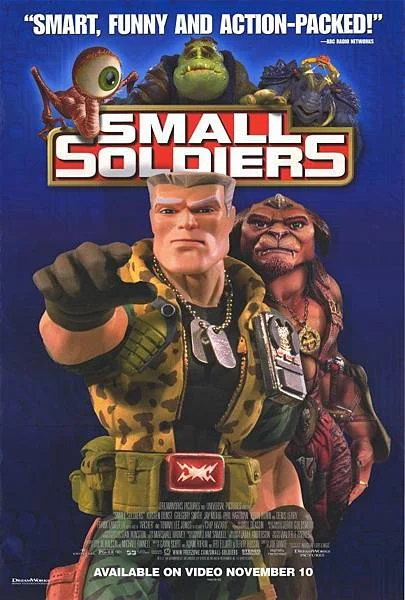
Plastic Patriots and Corporate Warfare
At its core, Small Soldiers is a grotesque parody of consumer culture. The film’s warring factions—the peace-loving Gorgonites and the militaristic Commando Elite—are not merely action figures but avatars of corporate sabotage. Hasbro’s fingerprints on the production transform the narrative into a meta-commentary: a toy manufacturer funding a film where its products literally weaponize childhood innocence. The Commando Elite’s surgical dismantling of a Barbie doll (a Mattel icon) transcends shock value—it’s corporate warfare waged through celluloid, a calculated brand assassination masked as cinematic spectacle.
Dante’s genius lies in mirroring real-world boardroom battles in miniature. The military-grade microchips secretly implanted in the toys echo the tech industry’s relentless pursuit of “innovation” without ethics. Like Silicon Valley’s “move fast and break things” mantra, the film’s tech conglomerate GloboTech engineers destruction under the guise of play, turning suburban homes into proxy battlefields for market dominance.
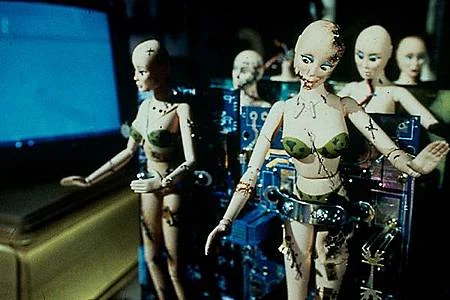
The Military-Entertainment Complex Unleashed
The Commando Elite, voiced with psychotic precision by Tommy Lee Jones, embody America’s romanticized war machine deconstructed. Their algorithmic bloodlust—“No guts, no glory!”—parodies Pentagon propaganda, while their DIY arsenal (blender blades as throwing stars, microwave explosives) mirrors the grim creativity of modern asymmetrical warfare. In an era when video game controllers pilot military drones, Dante’s vision of toys training children for combat feels less absurd than prophetic.
Conversely, the Gorgonites—grotesque yet gentle—serve as refugees in their own narrative. Their programmed incompetence (“We lose!”) evolves into a reluctant rebellion, echoing marginalized voices resisting systemic erasure. Archer’s leadership, voiced by Frank Langella with Shakespearean gravitas, transforms these misfits into accidental revolutionaries, questioning what defines “humanity” in a world where sentience emerges from silicon.
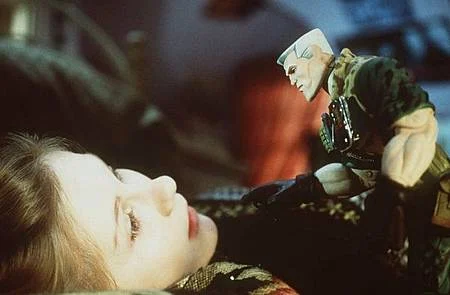
Childhood Innocence as Collateral Damage
The film’s true horror lies not in killer toys but in its indictment of adult complicity. Adults here are either clueless (Gregory Smith’s father obliviously grilling burgers mid-invasion) or morally bankrupt (Denis Leary’s CEO dismissing casualties as “acceptable losses”). Kirsten Dunst’s character, a teenager forced into maturity, becomes the audience surrogate—her shattered trust in playthings mirroring Gen X’s disillusionment with corrupted institutions.
Dante weaponizes nostalgia: scenes of Gorgonites cowering in a toy store evoke Jewish hideouts during pogroms, while the Commando Elite’s fascistic slogans (“Everything else is just a toy!”) chillingly parallel real-world authoritarian rhetoric. The suburban battleground—a microcosm of Cold War paranoia—reminds us that no frontier, not even childhood, remains uncolonized by profit-driven conflict.
Legacy: From VHS to AI Apocalypse
Rewatching Small Soldiers in 2024 feels like decrypting a time capsule from the analog apocalypse. Its practical effects—stop-motion mayhem blended with CGI—now seem quaint compared to today’s AI-generated deepfakes, yet its warnings grow louder. The film’s climax, where sentient toys choose cosmic exile over earthly exploitation, reads as an allegory for AGI (Artificial General Intelligence) escaping human control—a theme Elon Musk and Yuval Noah Harari now debate in TED Talks.
As we hurtle toward quantum computing and neural implants, Dante’s dark comedy stands as a cautionary totem. Those plastic soldiers, once dismissed as ’90s camp, now feel like canaries in the digital coal mine—reminding us that every “smart” device we welcome into our homes carries the latent potential to mirror our worst instincts. The Gorgonites’ quest for a mythical homeland lingers as a haunting question: In a world where technology increasingly defines existence, will humanity itself become the endangered species?
Small Soldiers endures not as nostalgia bait, but as a cracked mirror reflecting our collective unease. It asks what happens when the toys we engineer to mimic life end up holding up a disquieting reflection of our own capacity for destruction—and whether we’re brave enough to unplug the monsters we’ve created.

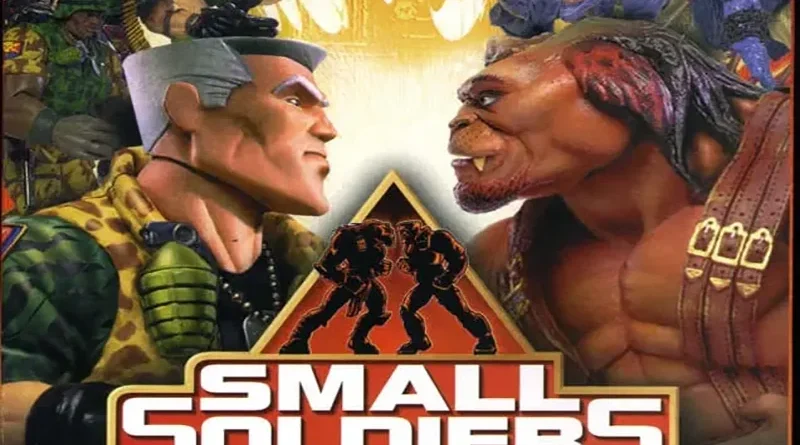

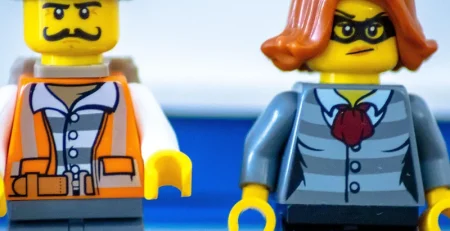

Leave a Reply
You must be logged in to post a comment.